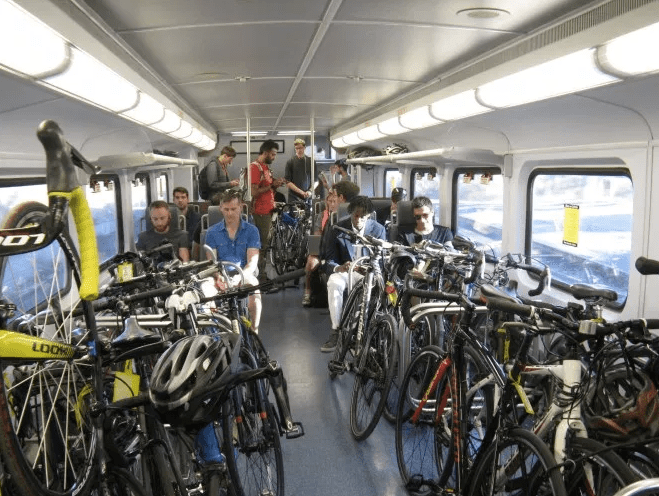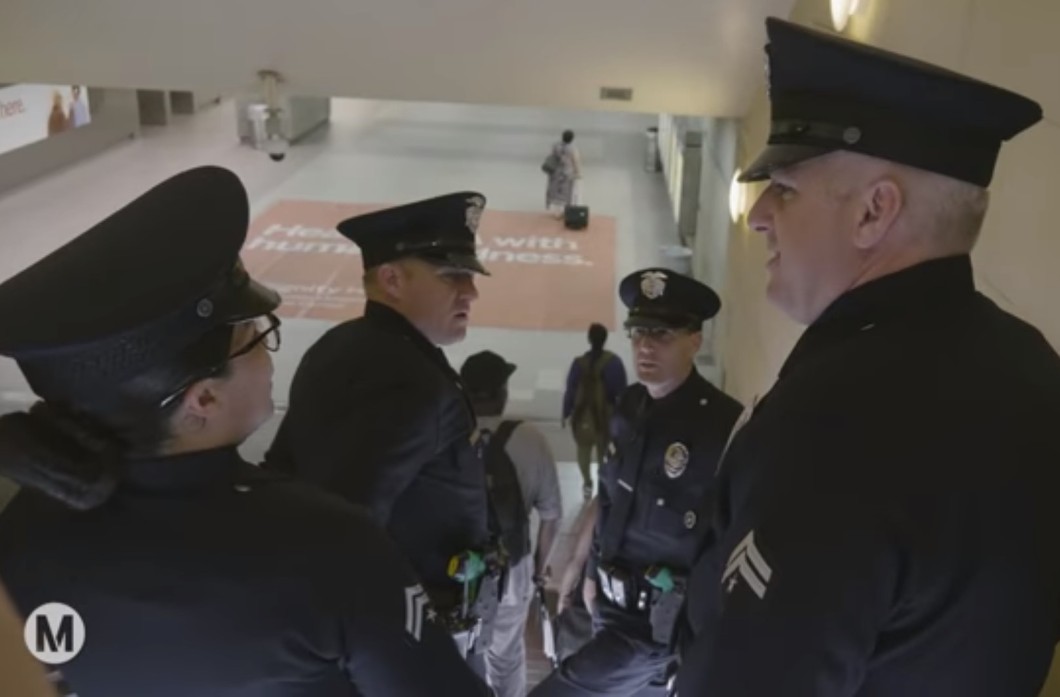One bike advocate called it a huge step backwards for Caltrain bike commuters.
The Caltrain board voted Thursday to go with its staff recommendation on bike cars and seating for the new electric fleet. That means fewer seats with a view of the bike storage areas and still only two bike cars per consist rather than a more-evenly distributed three, as advocates wanted.
"Our ask was really to spread out the bike spaces and seats among three cars instead of two cars, the reason for that is we wanted better security," explained the Silicon Valley Bicycle Coalition's Emma Shlaes in a phone interview with Streetsblog. The idea was that if the bike spaces are spread out, more customers will be able to keep an eye on their own steads.
"I am very disappointed that the new cars will have only half or fewer seats in view of bikes as the current cars," wrote Friend's of Caltrain's Adina Levin, in an email to Streetsblog. "This is a theft risk." In addition, Levin suggested some board members were dismissive.
"It was also pretty disappointing to hear various board members propose solutions that would require riders to purchase additional folding bikes or lower-cost bikes that are cheaper to replace if stolen. Electric Caltrain will have opportunities to diversify the rider base and it is not good to expect riders to have to pay hundreds of extra dollars in gear to be able to get too/from the train."
Next speaker: @alevin stated some facts:
— SF Bicycle Coalition (@sfbike) June 6, 2019
Current Gallery bike cars: 28 seats for 40 bike spaces
Current Bombardier bike cars: 15 seats for 24 bike spaces
Staff recommendation for new fleet: 7 seats for 36 bike spaces
Adina supports the @bikesv recommendation of 3 bike cars. pic.twitter.com/qXVzcKX9zn
Shlaes said some 20 cyclists and Caltrain customers spoke to the board in favor of another bike car, but to no avail.
"Electric trains will have 72 bike spaces per train, whereas today’s diesel trains have 77 bike spaces on average. Caltrain broke its promise made to the public in 2015 for more bike capacity on electric trains," said Shirley Johnson, who helped found the advocacy group BIKES ONBoard. "The bike-car layout encourages bike theft due to only seven folding seats within view of 36 bike spaces. Instead of designing bike cars right before they are built, Caltrain will be faced with expensive retrofit costs when the design fails in the field."
The new electric fleet is expected to come online in 2022. For now, "...we’re going to keep focusing on bike parking and bike share, to get additional options for people who want to bike," said Shlaes.






